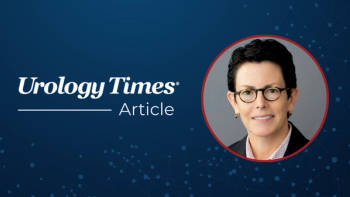
Care coordinator discusses working with female patients with bladder cancer

“I think being younger and going through something so scary, I think it's been really important to her to have someone with her throughout the whole process,” says Bree Duncan, RN, BSN.
In this video, Bree Duncan, RN, BSN, shares her experiences working with female patients with bladder cancer. Duncan is the Gail Kraemer Care Coordinator for Female Bladder Cancer Patients at Vanderbilt University Medical Center in Nashville, Tennessee.
Transcription:
Can you share some clinical experiences or case studies of patients you have cared for?
Typically, the patient population is a little bit older, just in general. But we have had some patients that are younger. And I think being younger and going through something so scary, I think it's been really important to her to have someone with her throughout the whole process. And sometimes things don't also go as smooth as everyone hopes when you're dealing with surgery and cancer. And so sometimes there's a lot of extra stuff that's involved and things that maybe feel a little bit more urgent, because you're hoping to get answers back quickly about things. And I think having a role like this where I am so readily accessible, being able to call my office and I'm going to either answer, or I'm going to call you back within probably a couple hours is really big for these people. Because that's just not something you get here at Vanderbilt, unfortunately. I wish we could offer that, but we are just so big that things go through an answering service, and things get funneled out that way. So for these patients to have access to me so closely, has, I think, eased a lot of their fears, especially like I said, when you're dealing with patients that have some more complications. A lot of patients just maybe need some more emotional support too along the way—someone that they can hug and cry with because they're scared of everything that's happening. And we create these relationships along the way, and they feel comfortable sharing their fears and concerns and stuff with me. I feel very lucky to actually be a part of it, and be that person. It's been really special, especially because of how it was all created. This one patient creating it and I had a really close relationship with her and to be able to carry this out and help other women in her honor has been really cool.
This transcription was edited for clarity.
Newsletter
Stay current with the latest urology news and practice-changing insights — sign up now for the essential updates every urologist needs.




